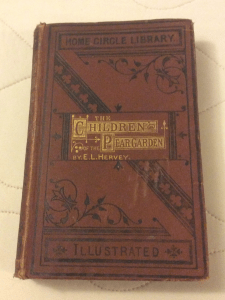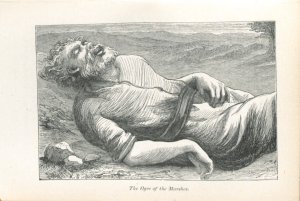Our final C19 of 2019 features Dr. Renée Ward talking on ‘The Earliest Beowulf for Victorian Children: E. L. Hervey’s “The Fight with the Ogre”’. The session will take place on Weds 4th Dec in MB3201. Refreshments will be served from 4pm, with the paper due to start at 4.15pm.
Abstract:
This talk introduces to modern audiences the short story “Roderic’s Tale: The Fight with the Ogre,” by Eleanora Louisa (Montagu) Hervey (1811-1903), a forgotten but prolific and well-known children’s writer in the nineteenth century. This previously unrecognized and unexamined tale, which appears in Hervey’s volume The Children of the Pear-Garden (1878), may, in fact, be the earliest known adaptation in English for children of the Old English poem Beowulf, as it predates more widely recognized early adaptations. Hervey’s story, “The Fight with the Ogre”, speaks directly to the nineteenth century’s heightened fascination with and concern for heritage, history, and empire, transforming its source into an highly condensed narrative, one which effaces much of the original’s material that grapples with questions of humanity, identity, and otherness (racial, behavioural, and religious). It ignores narratorial digressions (genealogies and contextual tales); eliminates the final battle between Beowulf and the dragon; and employs a heavily Christianized tone. Presented as an entry in an ornamental gift book, the story includes an illustration of Grendel as far more human than the original poem or Hervey’s adaptation suggest. Additionally, the story-telling framework positions the male child as the precursor to the adult patriarchal head and provides instruction on how he should rule himself and his household.
Biography:
My research has two main branches: medieval and post-medieval. Much of my research on the medieval period concerns the literature and culture of the high to late Middle Ages, with particular emphases on monsters; the romance genre and its cultural contexts; and relationships between English and Continental narratives. My published works to date on medieval romance explore embodiments of liminality and their connections to violence, and investigate how medieval authors use these representations to challenge or reinstate social hegemonies. These interests likewise inform my current book project, The Werewolf in Medieval Romance (under contract with Palgrave Macmillan) and my research on medieval outlaw figures.


Recent Comments